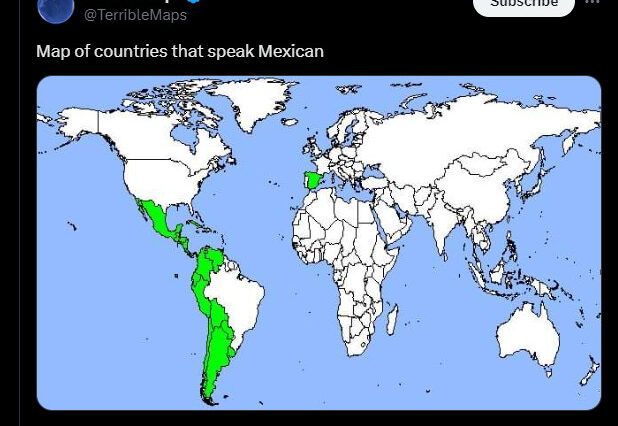French
Latest stories
70 Views
in Grammar, VocabularyThe silent Spanish letter H
More stories
-
33 Views
in Translation, Uncategorized, VocabularyNot all cognates look like twins, like naranja and orange
by
Admin updated
Cognates are words that have the same origin. If, in addition, these words have the same meaning, they are true cognates, but if the meanings are different then they are false cognates. Examples of true cognates are teléfono and telephone, auditorio and auditorium, obtener and obtain. Examples of false cognates are the typical example embarazada, […] More
-
57 Views
in Table of Expressions, Translation, VocabularyEl último Grito. 10 expressions that are not so easy to figure out (4)
by
Admin
Here are 10 common random idioms you may have trouble with if you hear them for the first time: Expression Approximate literal translation (what you might think you actually heard) Explanation pasado mañana past tomorrow, past morning the day after tomorrow, passing tomorrow el último grito the last scream? The last shout? the last […] More
-
67 Views
in Table of Expressions, Translation, VocabularyAutomóviles
by
Admin updated
Automobile vocabulary in Spanish. Talking about cars with people from another Spanish speaking countries is sometimes a big headache. The reason is that the vocabulary for this subject changes a bit from country to country for almost every element. In México, auto part names are often Spanglish words. Here are some examples: Mexico Spain […] More
-
43 Views
in Culture, TranslationFinito is Italian, not Spanish
by
Admin updated
It’s not uncommon to hear Spanish language students say finito! when they finish doing a quiz or an exercise. The thing is that finito meaning done! is not a Spanish word, it’s the past participle of the Italian verb finire. Finito in Spanish is an adjective that is used mainly in mathematics referring to a […] More
-
Don Emilio Jellinek-Mercedes
by
Admin updated
Several years ago, I put together a table about Spanish automobile-related vocabulary to show how it’s very different in Mexico and Spain. My theory was that cars came to the Spanish-speaking world simultaneously to Mexico via the United States, and Spain via France, and somehow there was not enough time to assimilate the new vocabulary […] More
-
787 Views
in Culture, Funny, TranslationThe Channel of the Stain
by
Admin updated
The English Channel’s name in Spanish El Canal de la Mancha, literarily translates as The Channel of the Stain. This is historically an unfortunate translation mistake from its French name Canal de la Manche, which in French means Channel of the Sleeve, yes, as in a shirt. Probably the channel’s shape resembled a sleeve to the […] More
-
67 Views
in Culture, Funny, Table of Expressions, TranslationAll the World
by
Admin updated
This is how Romance people say everybody: language the world all the world = everybody Spanish el mundo todo el mundo French le monde tout le monde Portuguese o mondo todo o mundo Romanian lumea (the definite article is indicated at the end, “lume+a” in this case). toată lumea Italian il mondo tutto il mondo […] More
-
The 10 Best Cities in the World in 2021, according to Condé Nast.
by
Admin updated
Which really are the best cities in the world? Our readers voted for their favourite urban destinations – ranking them for architecture, their buzzing food scenes and smart places to stay. How many have you been to? And – do you agree with the list? https://t.co/Yrks4vCvaZ — Condé Nast Traveller (@cntraveller) March […] More
-
47 Views
in Culture, Grammar, News, Table of Expressions, Translation, VocabularyActually.
by
Admin
Actually, remember this please English native speakers who are learning almost any other language, including Spanish, please watch out. Your word actual has a very different meaning in almost any other language. Spanish actual current, up-to-the-minute, happening at this time Portuguese atual current, up-to-the-minute, happening at this time French actuel current, up-to-the-minute, happening at this […] More
-
36 Views
in VideoWhite House Correspondent Goes Viral for Reporting in Six Different Languages for different news organizations.
by
Admin updated
WATCH: White House Correspondent Goes Viral for Reporting in Six Different Languages https://t.co/aMQpi8nHrV — Mediaite (@Mediaite) January 18, 2021 More














